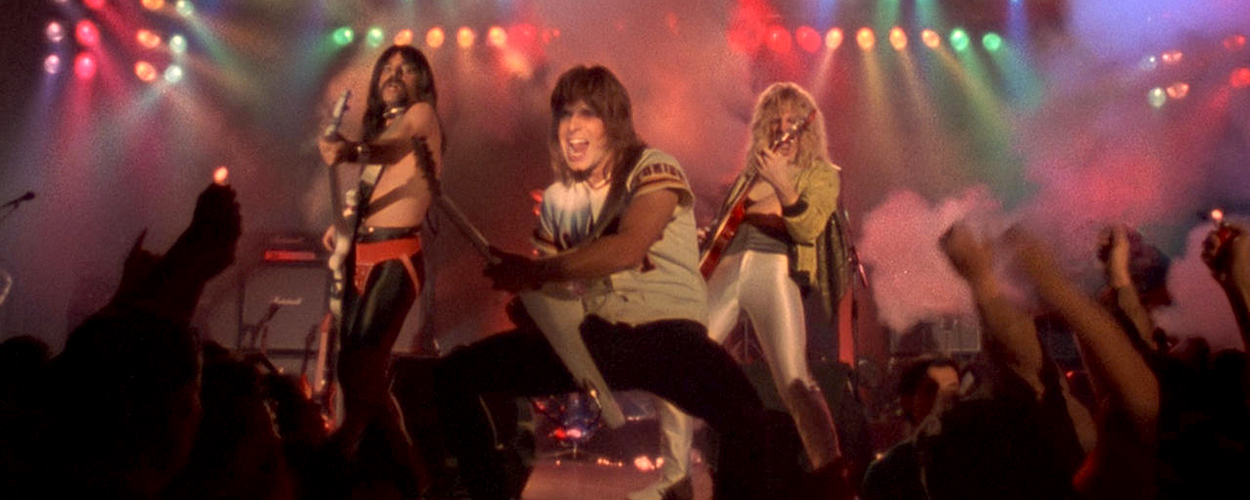This website uses cookies so that we can provide you with the best user experience possible. Cookie information is stored in your browser and performs functions such as recognising you when you return to our website and helping our team to understand which sections of the website you find most interesting and useful.
Artist News Business News Labels & Publishers Legal
Spinal Tap creators confirm StudioCanal dispute continues, now entering discovery phase
By Chris Cooke | Published on Wednesday 4 December 2019

Having settled their dispute with Universal Music last month, the creators of ‘This Is Spinal Tap’ have confirmed that their legal battle with the major’s French parent company Vivendi, and its movie division StudioCanal, is ongoing, and is now entering a pre-trial discovery phase.
Harry Shearer originally sued Vivendi and StudioCanal back in 2016, accusing the companies of misreporting financial information about the cult film and its spin offs in order to under-pay him royalties due from the franchise. His Spinal Tap co-creators Christopher Guest, Michael McKean and Rob Reiner subsequently came on board as co-plaintiffs.
Through a series of mergers and acquisitions back in the day, the two Vivendi companies – StudioCanal and Universal Music – ended up respectively controlling the ‘Spinal Tap’ movie and soundtrack rights. Although the Universal music firm was mentioned in the original lawsuit against Vivendi and StudioCanal, it was then formally added as a defendant in its own right in 2017 when Shearer et al expanded on their list of allegations.
The lawsuits against both StudioCanal and Universal Music included various claims of misconduct on the part the two Vivendi businesses. But last month the four men announced that they had reached an out of court settlement with the music company.
Having previously been quite scathing of Vivendi and StudioCanal when speaking about this legal dispute, Shearer was much more positive about his dealings with the Universal Music Group. He told reporters: “I must admit, from the moment we first began mediation with them to now, I’ve been impressed by UMG’s respect for creatives and their distinctive desire to seek a prompt and equitable solution to the issues”.
That experience of seeking a settlement with Universal in the US contrasts with their dealings with Vivendi and StudioCanal in France. The four men said in a statement yesterday that, “after a year of mediation and informal exchange of information” they “became frustrated by StudioCanal’s continued delay and failure to acknowledge the co-creators’ rights and their entitlement to past-due profits”.
They continued: “StudioCanal’s attitude demonstrates a fundamental failure to appreciate the duties expected of a film rights owner. StudioCanal’s tactics have only served to harden the creators’ determination to prevail”.
Confirming that the Vivendi/StudioCanal litigation was ongoing, Shearer et al yesterday announced that the dispute was now entering a pre-trial discovery phase. “This gives the plaintiffs the right to seek full access to StudioCanal’s internal books and records going back decades”, they explained.
“This”, they went on, “allows the four artists to confirm what they have long suspected: that the defendants have, for more than two decades, deliberately shielded their corporate failings and accounting sleight of hand, and withheld accurate information relating to the revenues and profits generated by the film. The French company [also] stood idly by while others made a killing from sales of merchandise inspired by the film and the much-beloved, faux heavy metal band it depicts”.
Shearer himself said yesterday: “The past year has felt like being stuck in limbo. We’re now back and unleashed, ready to burrow deep into StudioCanal’s ledgers to see what commercial secrets and corporate failings they have concealed”.
“Their failed motions to dismiss, delay and obfuscate won’t help the studio now we are able to dig up what they have been hiding all these years”, he went on. “We get to depose key figures, including top executives of StudioCanal and Vivendi, such as [the film division’s [EVP International Production And Acquisitions] Mr Ron Halpern”.
“They reported that we were entitled to $81, between the four of us, for 35 years of merchandise sales”, he concluded. “Even with the limited information we now have, it is clear that StudioCanal shielded millions of dollars in revenues from us and manipulated the accountings in their favour”.
Also commenting on the ongoing case, Guest specifically contrasted the attitude of StudioCanal to that of its sister music company.
“In discussions over the recordings UMG ‘got it'”, he says, “and throughout showed respect for talent, for intellectual property and the creative process. UMG’s approach eventually brought about an amiable and equitable solution to our music claims. StudioCanal, however, has been dismissive to the point of contemptuous”.
Meanwhile, Reiner again stressed that the four men see their dispute as putting the spotlight on the wider issues creative people face then they go into business with major corporations. Or, perhaps even more importantly, when work they produce for small independents is subsequently acquired by major studios.
“This isn’t just about the four of us – it never has been”, he told reporters. “The film was made on the thinnest of budgets. And so many creative people worked hard contributing their talents to a film that has stood the test of time. That’s why we took on this fight. Not just for us, but for all hardworking artists who should get their fair share from their creative efforts”.
We now await to see what happens in the discovery phase and if StudioCanal will follow its sister company in changing its stance in a bid to try to secure an out of court settlement.





